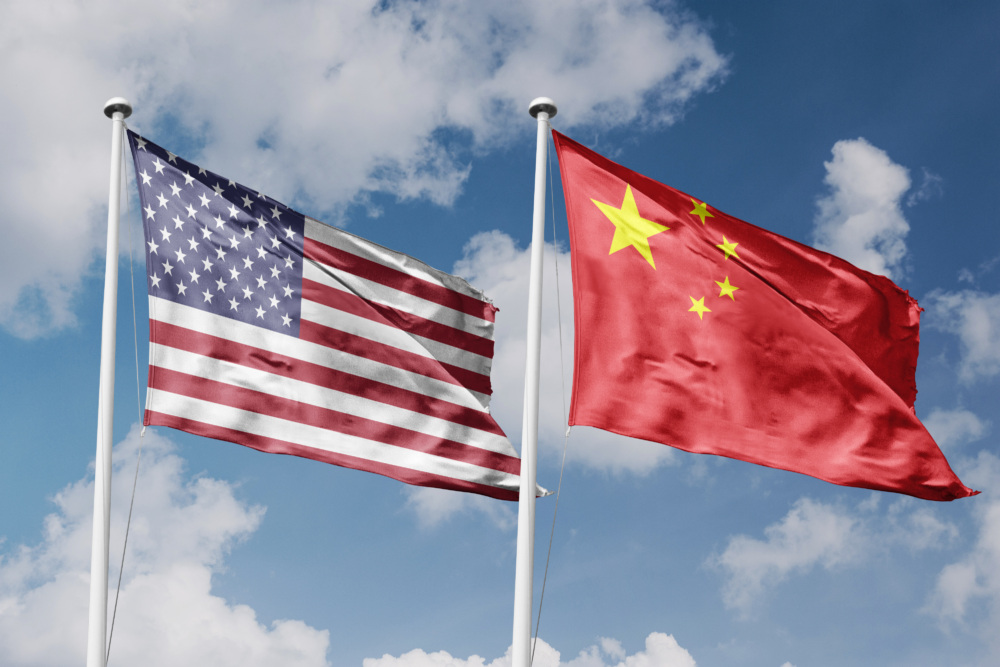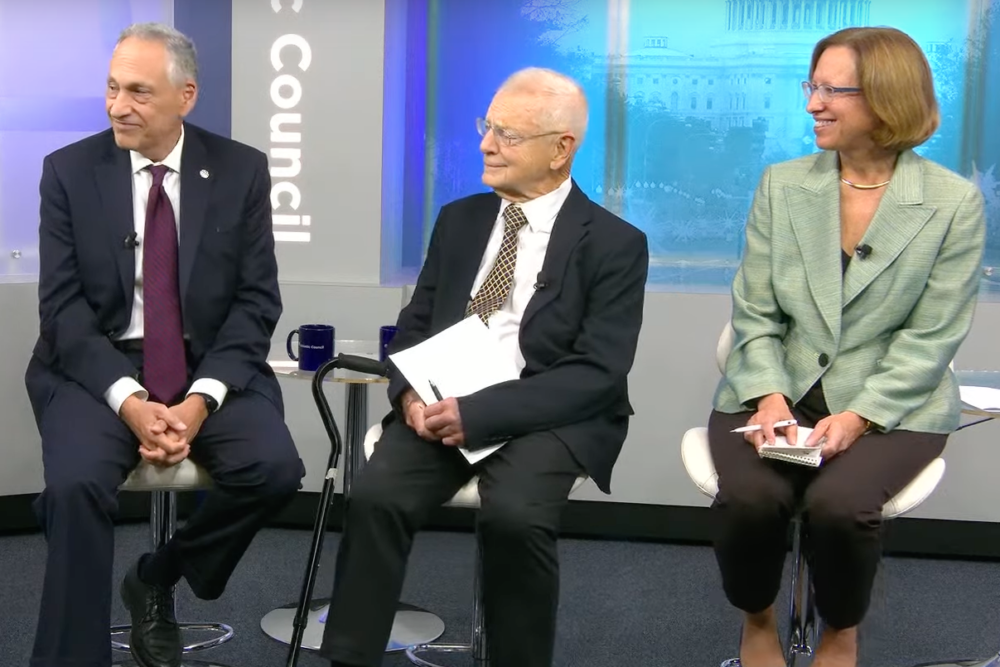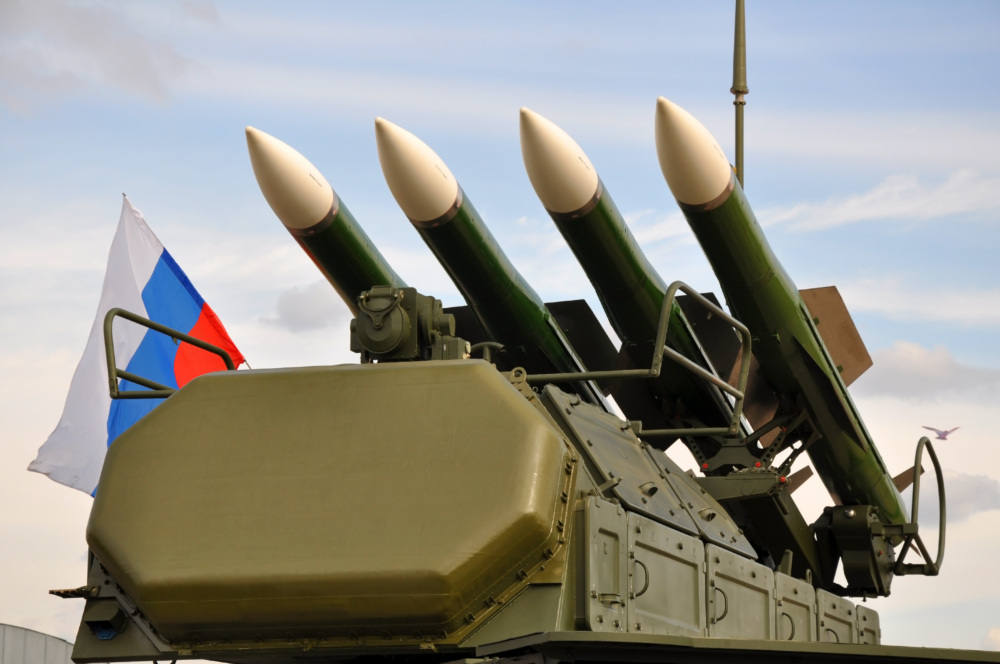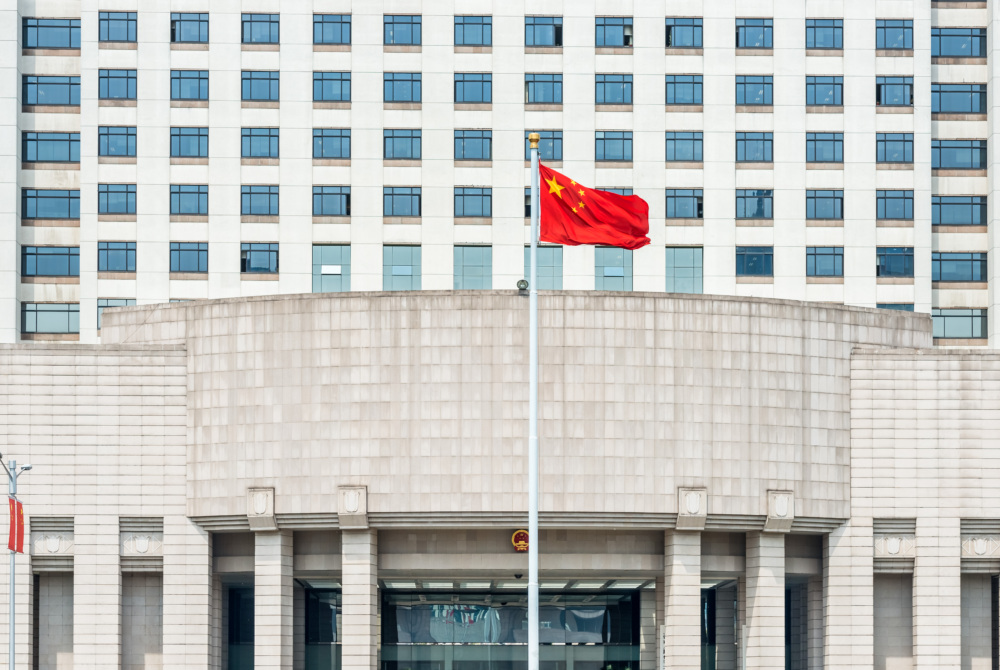
Sydney Kakuk
Herbert Scoville Jr. Peace Fellow, Global Nuclear Policy Program
Atomic Pulse
The strategic relationship between the United States and China is strained, and the friction could increase as China builds up its nuclear arsenal. Meanwhile, the United States and China have seemingly divergent perspectives on global security and their respective roles. Experts fear that the current era of great power tension will increase the risk of blunders or miscalculations that could lead to conflict and even nuclear catastrophe.
On November 17, NTI hosted Dr. Tong Zhao for a virtual seminar to discuss the future of U.S.-China nuclear relations and opportunities for reducing nuclear risks between both countries. Zhao, a leading expert on Chinese security and foreign policy, is a senior fellow in the Nuclear Policy Program at the Carnegie Endowment for International Peace and a visiting research scholar at Princeton University’s Science and Global Security Program.
During the event, introduced by NTI Co-Chair and CEO Ernest J. Moniz and moderated by Lynn Rusten, vice president of NTI’s Global Nuclear Policy Program, Zhao stressed the urgent need to address risk in the U.S.-China nuclear relationship. Moniz opened by explaining that the seminar comes at a critical time – less than a week after presidents Joe Biden and Xi Jinping sat down for an extensive conversation on the sidelines of the G20 Summit in Bali. There, the two presidents discussed ways to steady the bilateral relationship and touched on other issues of mutual interest. They made clear the unacceptability of Russia’s nuclear threats toward Ukraine and reiterated the principle that “a nuclear war must never be fought and can never be won.” While Zhao saw this as a productive meeting between the two leaders, he argued that sustained and deepened bilateral discussion at multiple levels would be necessary to increase mutual understanding and ultimately reduce the risk of conflict during U.S.-China strategic competition.
Zhao explained that China has evolved its nuclear doctrine and posture from a small yet capable deterrent to a larger, more diverse one. China has decided to rapidly expand its nuclear arsenal, with U.S. intelligence agencies predicting an increase of up to 1,000 warheads by 2030. This is a significant increase from its stockpile, currently estimated to be a few hundred nuclear weapons. In 2021, the U.S. government addressed in its annual report on the Chinese military that China was constructing hundreds of silos to house a fleet of new intercontinental ballistic missiles. This was unanticipated by the U.S. national security community. Zhao also highlighted the renewed importance of tactical, theater-based nuclear weapons in China’s nuclear doctrine. To address what it perceived as a weak point in its nuclear capability, China has developed a more accurate, theater-based nuclear force to deter a limited war and reduce the risk of a blunder. The United States, its allies, and partners have grown concerned over these Chinese nuclear developments, exacerbated by Beijing’s reluctance to be transparent about changes in its nuclear doctrine and arsenal. Whereas the United States and Russia have historically viewed mutual nuclear transparency as stabilizing, China takes the opposite view. Zhao explained that this variance is due to a core concept of Chinese military and deterrence theory which sees value and advantage in ambiguity and tactical deception.
Zhao further highlighted the sources of mistrust and misperception between Washington and Beijing. At the strategic level, China believes the United States and the West are seeking to prevent its rise as a global economic and military power. This causes Beijing to think it must continue to build up its military to have its position recognized and respected. Beijing views the U.S. nuclear modernization program as escalatory rather than defensive. Conversely, Washington sees China’s nuclear buildup as a proactive cause for concern. Zhao assessed that this dangerous “action-reaction” spiral would continue in the absence of increased dialogue and improved understanding of how each side perceives their security and the threats they face. To quell nuclear risk, arms races, and escalation, Zhao argues that the United States and China must engage in deep, comprehensive strategic dialogue to avoid misinterpretation and miscalculation. In his view, a broad strategic dialogue is a necessary prerequisite to seek further, more detailed conversations with China about its nuclear policies and forces and talks over bilateral risk reduction efforts.
Rather than military drivers, such as U.S. and allied missile defenses, Zhao believes a set of political drivers has propelled the Chinese nuclear buildup. The critical cause behind the buildup can be attributed to the Chinese perception of power transition. China believes it is undergoing a process where the geopolitical landscape is shifting to accommodate its rising power. As China gains influence, it views the United States and its Western allies as becoming more desperate to hold onto their traditional spheres of influence, specifically in the East. Because of this, Zhao suggests China is not receptive to engaging with the United States since it may see American attempts at risk reduction as an effort to contain China’s advancement as a global power. A buildup in nuclear capability will allow China to accelerate the power transition further, which leaders in Beijing may believe will facilitate peaceful coexistence. In the meantime, an ambiguous buildup of its nuclear arsenal could give China greater political leverage over the United States, so it can finish its metamorphosis without engaging in direct conflict and advance its core national interests. Ironically, this approach by China could stimulate an unintended reaction from the United States and the West, leading to an accelerated arms race and a significant risk of conflict.
The Biden-Xi Summit represented a foundational step toward a comprehensive conversation on bilateral relations and risk reduction. Zhao emphasized that the most crucial goal of these conversations is to clarify the origins of risk and specify the technological parameters for risk reduction. He explained that the United States must set clear standards on the technical aspects of these proposals, so they are easier for China to implement. Moreover, Zhao highlighted the need for the United States and China to build credibility in their risk reduction policies, including China’s “no first use policy.” While China has a strategic interest in risk reduction and geopolitical stability to accelerate its power transition, the concepts of arms control and strategic stability are sensitive topics for the nation due to the political drivers behind its nuclear buildup. Zhao believes it will take time for China to appreciate the importance and benefit of arms control and risk reduction measures since it has less experience than the United States and Russia with managing severe nuclear risk.
Zhao expressed the urgent necessity of starting a broadly scoped political dialogue between senior government officials. Creating an environment where the United States and China can address their perception of one another’s military and nuclear posture will help resolve misunderstandings and encourage more open lines of communication in times of competition and crisis. To supplement these conversations and catalyze cooperation, Zhao also believes that experts should meaningfully engage on these issues in parallel. He suggested the two governments could mandate a joint-expert examination to evaluate concrete, existing ideas for risk reduction measures and how they can be applied to the U.S.-China relationship. The results could be shared with both governments for their further consideration.
Sign up for our newsletter to get the latest on nuclear and biological threats.
Lynn Rusten, vice president of NTI’s Global Nuclear Policy Program, shares her reaction to the 2023 Strategic Posture Report during a panel event at the Atlantic Council.
Putin’s announcement is a significant blow to the last remaining strategic arms control agreement between the world’s two largest nuclear powers and to the fraying Euro-Atlantic security architecture more broadly.
Amid uncertainty around China’s expanding nuclear program and silence from Beijing about the intent behind the build-up, a new report offers details about China’s nuclear program that suggest significant implications for U.S. and global security.



